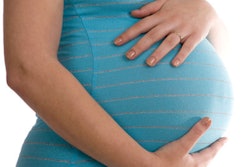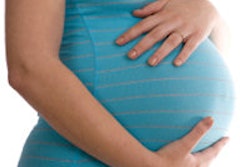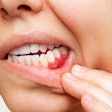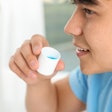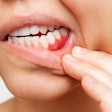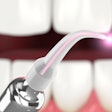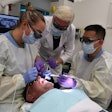The oral-systemic link has elevated the importance of oral health in the public eye, but for pregnant women the stakes are even higher. And dentists have often been overly cautious in their treatment of expecting moms as a result.
But a recent study in the Journal of the American Dental Association (June 2008, Vol. 139:6, pp. 685-695) finds that it is safe for pregnant women to get essential dental treatment (EDT) as well as topical and local anesthetics at 13 to 21 weeks' gestation.
"The consensus in the obstetrics community is that few risks are associated with routine dental care during pregnancy," wrote the study authors. "Many obstetricians, however, believe that dentists are overly cautious about providing dental care to pregnant women."
Study authors noted several reasons for dentists' concern when treating pregnant women. It could be fear of a malpractice suit or harming the woman or fetus. They may be concerned that anesthetics, antibiotics, and analgesics commonly used in dentistry could lead to fetal malformations, or that bacteremias caused by some dental procedures may lead to uterine infections, spontaneous abortions, or preterm labor.
The research team, led by Bryan Michalowicz, D.D.S., a professor of periodontics at the University of Minnesota School of Dentistry, looked at data from the multicenter randomized controlled Obstetrics and Periodontal Therapy (OPT) Trial. The team recruited 823 women from obstetrics clinics at the Hennepin County Medical Center in Minneapolis, the University of Kentucky in Lexington, the University of Mississippi Medical Center in Jackson, and Harlem Hospital in New York City.
All the women had periodontitis, meaning they had four or more teeth with a probing depth of at least 4 mm, a clinical attachment loss of at least 2 mm, and bleeding on probing at 35% or more of tooth sites.
A group of 413 women were randomly assigned to receive scaling and root planning before 21 weeks' gestation, and 395 completed part of the treatment. A control group consisted of 410 women who received treatment after delivery.
Dentists determined that 483 women were in need of essential dental treatment (EDT), which meant they had an odontogenic abscess, decayed teeth that could become symptomatic during the course of the study, or fractured/decayed teeth that were affecting the health of adjacent soft tissues. Of these women, 351 were treated for EDT.
Researchers had pregnancy outcome data for 814 (98.9%) of 823 women. In total, 82 pregnancies ended in live preterm births, 6 in spontaneous abortions (before 20 weeks' gestation), 13 in stillbirths (from 20 weeks' gestation to 36 weeks, six days' gestation), and 2 in elective abortions.
"The results of this study show that EDT administered at 13 to 21 weeks' gestation was not associated with an increased risk of experiencing serious medical adverse events, preterm deliveries, spontaneous abortions or stillbirths, or fetal anomalies," the authors stated. "Use of topical and local anesthetics for scaling and root planing also was not associated with an increased risk of experiencing these adverse events and outcomes."
However, "additional large retrospective and prospective studies, as well as studies of other dental treatments, are needed to confirm the safety of dental care during pregnancy," the authors concluded.




